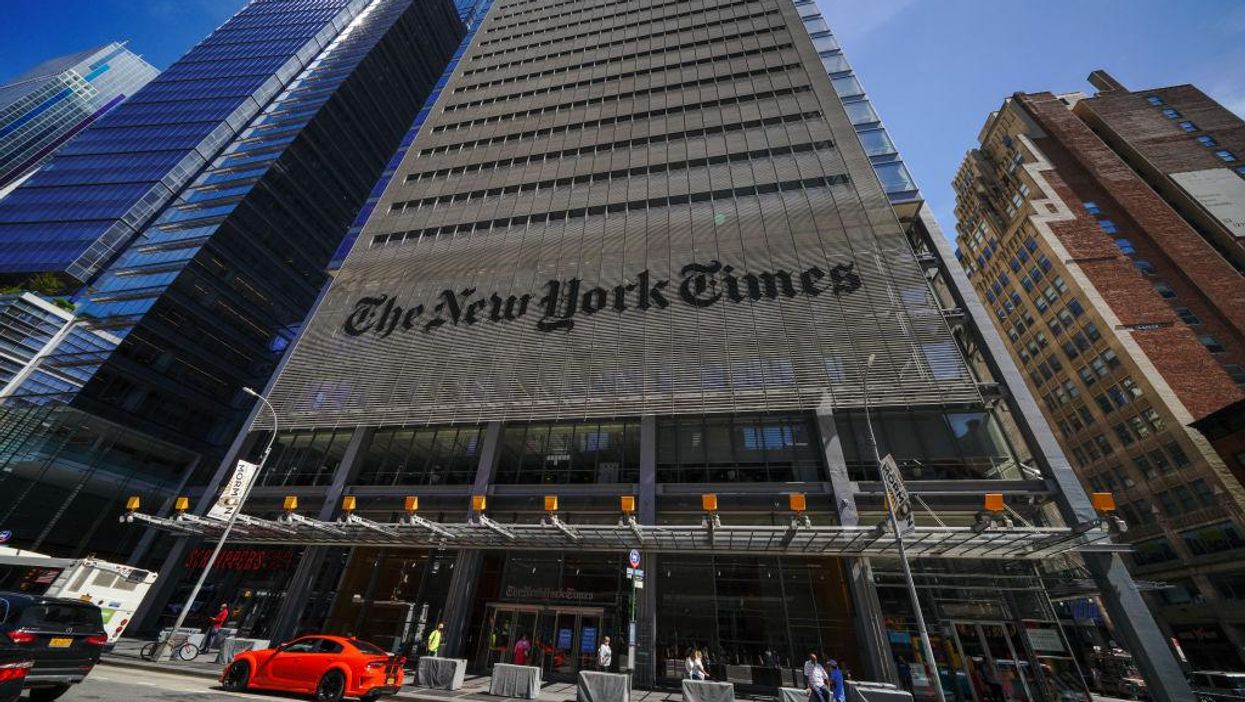
Photo by John Nacion/SOPA Images/LightRocket via Getty Images

Whoops
The New York Times was forced to retract an award-winning podcast about a supposed ex-ISIS fighter on Friday after an internal review determined much of the story was fabricated.
The 2018 podcast series, titled "Caliphate," centered on the tale of a Canadian man of Pakistani origin who referred to himself as Abu Huzayfah and claimed to have been a former member of ISIS who traveled to Syria to join the group before escaping its hold. It was pioneered by renowned journalist Rukmini Callimachi, a correspondent for the paper who is known for reporting from conflict zones in the Middle East.
In the podcast, Huzayfah even recounted in excruciating detail his participation in multiple atrocities on behalf of the terrorist organization; namely, the shooting of one man in the head and the stabbing of another before hanging his corpse on a cross. But, as it turns out, it was all a lie.
The Canadian man, who is actually named Shehroze Chaudhry, was arrested by authorities in September — two years after the podcast was released — for carrying out a terrorist hoax. Canadian police said they came to believe Chaudhry was lying about the whole affair after he gave contradictory reports regarding his activities with the terrorist group to American and Canadian news outlets. The news prompted an internal review into Chaudhry's claims by the New York Times.
In a new editor's note on the podcast page, the Times admits they "discovered significant falsehoods and other discrepancies" while reporting on the series but didn't press hard enough to verify the claims and decided to continue on with the project.
During the investigation, the paper "found a history of misrepresentations by Mr. Chaudhry and no corroboration that he committed the atrocities he described in the 'Caliphate' podcast," the note continued. As such, they concluded that episodes presenting Chaudhry's claims "did not meet our standards for accuracy."
In an interview with NPR about the retraction, New York Times Executive Editor Dean Baquet explained how the paper's over zealous interest in the story led to the major editorial mishap.
"We fell in love with the fact that we had gotten a member of ISIS who would describe his life in the caliphate and would describe his crimes," he said. "I think we were so in love with it that when we saw evidence that maybe he was a fabulist, when we saw evidence that he was making some of it up, we didn't listen hard enough."
He added in another interview posted by the Times on Friday that much of the blame for the erroneous reporting falls in the paper's leaders, which includes himself.
"When The New York Times does deep, big, ambitious journalism in any format, we put it to a tremendous amount of scrutiny at the upper levels of the newsroom," he said. "We did not do that in this case, and I think that I or somebody else should have provided that same kind of scrutiny, because it was a big, ambitious piece of journalism. And I did not provide that kind of scrutiny, nor did my top deputies with deep experience in examining investigative reporting."
Shortly after its release, "Caliphate" hit the top spot on Apple's list of most downloaded podcasts and later won an Overseas Press Club prize and a Peabody Award.